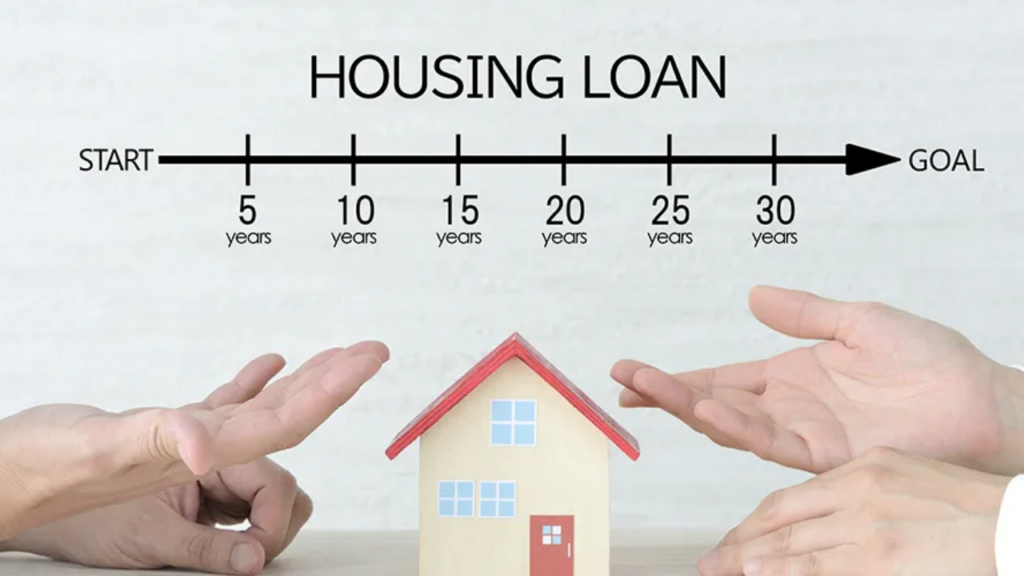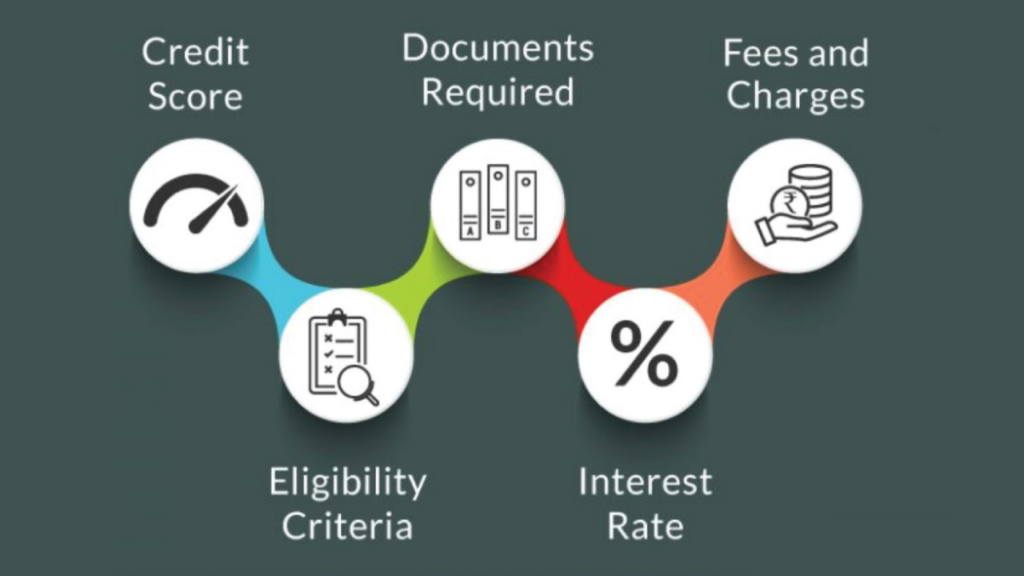Mortgage vs Home Loan in India: Key Differences Explained
Introduction

When buying a home in India, most of us rely on financial assistance in the form of mortgages or home loans. While these terms are often used interchangeably, they are not the same. Understanding the differences, Mortgage vs Home Loan can help you make informed decisions about financing your dream home.
What is a Mortgage?
A mortgage is a type of loan specifically used for purchasing real estate. In a mortgage agreement, the property being purchased acts as collateral for the loan. This means that if the borrower fails to repay the loan, the lender has the right to take possession of the property through a legal process known as foreclosure.
What is a Home Loan?
A home loan, on the other hand, is a broader term that refers to any loan taken to purchase or construct a residential property. Home loans can be used for various purposes, such as buying a plot of land, building a house, or renovating an existing property. Unlike a mortgage, a home loan may not always require the property to be used as collateral.
Key Differences Between Mortgages and Home Loans
While both mortgages and home loans serve the purpose of financing property purchases, they differ in terms of collateral requirements, interest rates, and loan tenure. Mortgages are specifically tied to the purchased property and typically have lower interest rates due to the collateral involved. In contrast, home loans may offer more flexibility in terms of collateral and interest rate options.

Interest Rates:
Interest rates play a crucial role in both mortgages and home loans. In a mortgage, interest rates can be fixed or variable. Fixed interest rates remain the same throughout the loan tenure, providing stability in monthly payments. On the other hand, variable interest rates can fluctuate based on market conditions, affecting your monthly payments.
For home loans, the interest rates can also be fixed or floating. Fixed rates offer predictability as the rate remains constant, making budgeting easier. Floating rates, however, can change periodically, impacting your EMIs. It’s essential to compare interest rates from different lenders to choose the most favourable option based on your financial situation
Loan Amount:
The loan amount available for mortgages and home loans can vary significantly. Mortgages often involve larger loan amounts, making them suitable for buying high-value properties. Home loans, on the other hand, may cater to a broader range of budgets, including smaller loan amounts for purchasing homes or land.
Loan Tenure:
Loan tenure is a crucial aspect to consider when opting for a mortgage or a home loan. The loan tenure refers to the duration for which you will be repaying the borrowed amount. In India, the loan tenure for mortgages and home loans typically ranges from 5 years to 30 years.
While mortgages generally have longer loan tenures, often up to 30 years, home loans may offer more flexibility with shorter tenures starting at 5 years. The tenure you choose can impact your monthly EMI amount. Opting for a longer tenure can lower your EMI but increase the overall interest paid, whereas a shorter tenure may result in higher EMIs but lower interest costs.
Purpose of the Loan:
While both mortgages and home loans serve the purpose of financing property purchases, mortgages are specifically designed for buying residential or commercial properties. Home loans, on the other hand, can be used for various purposes beyond property purchase, such as home renovation, construction, or land acquisition.
| Parameter | Home Loan | Mortgage Loan |
| Purpose | To help in home buying or renovation only | To help address housing or business-related expenses and for debt consolidation |
| Loan-to-Value Ratio | May go up to 75% to 90% of the property’s value | May go up to 70%* to 75%* of the property’s value |
| Interest Rate | 8.50%* p.a. for salaried applicants | 10.10%* p.a. for salaried and professional applicants |
| Loan Sanction | Rs. 5 crore or higher, basis of eligibility | Rs. 5 crore or higher, basis of eligibility |
| Tenor | Up to 40 years | Up to 17 years |
| Disbursement Time | In 48 Hours* from the time of formal loan approval | In 72 hours* from the time of formal loan approval |
| Part-Prepayment Charges/Foreclosure Charges | No additional charges on part-prepayment or foreclosure for individual borrowers with a floating interest rate Home Loan | Charges are applicable to foreclose or part-prepay Loan Against Property |
| Eligibility Criteria | Easy to meet and basic; open to salaried, professional, and self-employed applicants | Easy to meet and basic; open to salaried, professional, and self-employed applicants |
Eligibility Criteria: Income, Credit Score, and More

When applying for a mortgage or home loan in India, lenders consider various eligibility criteria to assess your repayment capacity. These criteria typically include your income, employment stability, age, credit score, existing financial obligations, and the value of the property you intend to purchase. Meeting these criteria is crucial to qualify for the loan and secure favourable terms.
Income plays a crucial role in determining your loan amount eligibility. Lenders usually set a minimum income requirement to ensure that you can afford the monthly repayments. Additionally, having a stable job or business with a regular income stream can strengthen your loan application.
Your credit score is another essential factor that lenders consider. A good credit score indicates your creditworthiness and ability to manage debt responsibly. A higher credit score can lead to better loan terms, including lower interest rates and higher loan amounts.
Furthermore, your age and existing financial commitments, such as outstanding loans or credit card debt, can impact your loan eligibility. Lenders assess your debt-to-income ratio to determine whether you can comfortably manage additional debt repayments.
Lastly, the property value and type also influence your loan eligibility. Lenders may have specific criteria regarding the property’s location, type, and age to mitigate their risk.
Tax Implications: Deductions and Benefits
Another essential aspect to consider is the tax implications of mortgages and home loans. In India, borrowers can avail of tax benefits on both the principal amount and the interest paid on home loans under Section 24(b) and Section 80C of the Income Tax Act. Understanding these tax benefits can help borrowers maximise their savings. Here are some key tax benefits to consider:
- Deductions under Section 24(b) of the Income Tax Act: Under this section, borrowers can claim deductions on the interest paid on their home loan. For a self-occupied property, the maximum deduction allowed is ₹2 lakh per year. In the case of a let-out or deemed let-out property, the entire interest amount can be claimed as a deduction.
- Deductions under Section 80C of the Income Tax Act: Borrowers can also claim deductions on the principal repayment of the home loan under this section. The maximum deduction allowed is ₹1.5 lakh per year, which includes the principal amount, stamp duty, and registration charges.
- Additional Deductions for First-Time Homebuyers: First-time homebuyers can avail of additional deductions of up to ₹50,000 under Section 80EE on the interest paid on the home loan if certain conditions are met.
- Tax Benefits for Joint Home Loans: In the case of joint home loans, all co-applicants can claim deductions individually if they are also co-owners of the property.
Taking advantage of these tax benefits can significantly reduce the overall cost of borrowing and make homeownership more affordable for individuals in India. It is advisable to consult with a tax advisor or financial planner to fully understand the tax implications and maximise the benefits of your mortgage or home loan.
Risk Assessment: Evaluating Pros and Cons

Before deciding between a mortgage and a home loan, it is vital to assess the risks associated with each option. Mortgages typically have lower interest rates but require collateral, such as the property itself. On the other hand, home loans may have slightly higher interest rates but offer more flexibility and accessibility. Evaluating the pros and cons of each can help borrowers make an informed decision.
Pros of Home Loan
- Lower Interest Rates: Home loans typically come with lower interest rates compared to other forms of borrowing, making them a cost-effective way to finance a property purchase.
- Longer Repayment Period: Home loans offer longer repayment periods, which can help spread out the cost of buying a home over a more extended period, making it more manageable for borrowers.
- Tax Benefits: Borrowers can avail of tax benefits on the principal and interest components of their home loan under the Income Tax Act, making it a tax-efficient form of borrowing.
- Easier Approval: Home loans are generally easier to qualify for compared to other types of loans, as they are secured against the property being purchased.
- Flexible Repayment Options: Most lenders offer flexible repayment options, allowing borrowers to choose a repayment schedule that suits their financial situation.
Overall, a home loan can be a convenient and cost-effective way to finance the purchase of a property, making it a popular choice among homebuyers in India.
Cons of Home Loan
- Interest Payments: While home loans offer the convenience of spreading out the cost of purchasing a home over an extended period, you end up paying a significant amount in interest over time. This interest can substantially increase the total amount you pay for your home.
- Stringent Eligibility Criteria: Home loans often come with strict eligibility criteria set by financial institutions. Meeting these criteria, such as good credit score, stable income, and low debt-to-income ratio, can be challenging for some individuals.
- Prepayment Charges: Some home loan agreements may have prepayment penalties if you decide to pay off the loan amount before the tenure ends. These charges can impact your overall cost of borrowing.
- Additional fees: Apart from the interest payments, home loans often come with various fees, such as processing fees, legal fees, and administrative costs, which can add to the overall expense of taking out a loan.
Pros of Mortgages
Mortgage allows you to build equity in your home over time. As you make your monthly payments, a portion goes towards paying down the principal amount of the loan, increasing your ownership stake in the property. This can be a valuable asset for your financial future.
Furthermore, mortgages provide the opportunity for potential tax benefits. In many countries, including India, the interest paid on a mortgage is tax-deductible, which can lead to significant savings on your annual tax bill. This can make homeownership more financially advantageous compared to renting.
Overall, opting for a mortgage can be a wise choice for individuals who are looking to invest in a property for the long term and build wealth through homeownership. By taking advantage of the lower interest rates, equity-building opportunities, and potential tax benefits, a mortgage can be a valuable financial tool for achieving your homeownership goals.
Cons of Mortgage
- Higher Interest Rates: Mortgages generally have higher interest rates compared to home loans. This can result in higher overall costs over the life of the loan.
- Longer Loan Terms: Mortgage loans often come with longer repayment periods, which means you may end up paying more in interest over time.
- Strict Eligibility Criteria: Lenders may have stricter eligibility criteria for approving a mortgage, including higher credit score requirements and larger down payments.
Decision Factors: What to Consider

When deciding between a mortgage and a home loan, several factors must be considered. Your financial situation, the type of property you are looking to purchase, and your long-term financial goals all play a crucial role in making the right choice. Here are some key factors to consider:
- Loan Amount: Consider the amount of money you need to borrow to purchase your home. Home loans typically cover up to 80-90% of the property’s value, while mortgages may cover a lower percentage. Assess your financial needs and choose the option that best suits your loan amount requirements.
- Interest Rates: Compare the interest rates offered by banks and financial institutions for both mortgages and home loans. Interest rates for mortgages may be lower compared to home loan rates, but it’s essential to understand the terms and conditions associated with each option.
- Repayment Period: Consider the repayment period for both a mortgage and a home loan. Mortgages typically have longer repayment terms compared to home loans, which can affect the total interest paid over the loan’s duration. Choose a repayment period that aligns with your financial capabilities.
- Eligibility Criteria: Understand the eligibility criteria set by lenders for mortgages and home loans. Factors such as credit score, income stability, and property type may influence your eligibility for each type of loan. Ensure you meet the necessary criteria before applying for a loan.
- Flexibility: Consider the flexibility offered by each option in terms of repayment schedules, prepayment options, and loan transferability. Evaluate whether a mortgage or a home loan provides the flexibility you need to manage your finances effectively.
- Additional Costs: Factor in additional costs such as processing fees, legal charges, insurance premiums, and other expenses associated with obtaining a mortgage or a home loan. Understanding the total cost of borrowing can help you make a well-informed decision.
- Financial Goals: Align your choice between a mortgage and a home loan with your long-term financial goals. Consider how each option fits into your financial plan and supports your objectives, whether it’s building equity through homeownership or managing your cash flow efficiently.
Post – Loan Management Tips

After securing a mortgage or a home loan, it’s essential to manage your finances efficiently. Here are some post-loan management tips:
- Regular Payments: Ensure timely repayment of EMIs to maintain a good credit score and avoid penalties.
- Prepayment Options: If you have surplus funds, consider making partial prepayments on your loan to reduce the principal amount and the overall interest burden.
- Emergency Fund: Build an emergency fund to cover unexpected expenses and safeguard your financial stability.
- Review Finances: Periodically review your financial situation, adjust your budget if needed, and plan for future investments.
- Refinancing Options: Explore refinancing options if you find better interest rates or loan terms that could benefit you in the long run.
- Financial Discipline: Practise financial discipline to achieve your long-term financial goals and secure your financial future.
- Insurance Coverage: Consider taking out insurance policies such as home insurance or mortgage protection insurance to safeguard your property and loan liability.
Conclusion

After exploring the key differences between a mortgage and a home loan, it’s clear that each financing option has its own set of advantages and disadvantages. When deciding between a mortgage and a home loan, it’s crucial to consider your financial situation, the factors that matter to you the most, and how each option aligns with your long-term goals. The choice between a mortgage and a home loan will depend on your individual preferences, financial capabilities, and plans.
FAQ’s
Lenders utilise the loan-to-value (LTV) ratio to determine the amount borrowers can obtain. This ratio is calculated by dividing the loan amount by the assessed value of the property. Home loans generally span between 80-90% of the property’s current market value, whereas mortgage loans typically cover 75% of the property’s value.
The eligibility requirements for home loans and mortgage loans are generally the same. Both usually necessitate a stable income, a favourable credit history, and the capability to provide down payments. Nonetheless, individual criteria may vary among lenders, underscoring the importance of researching diverse options.
A home loan entails individuals borrowing funds from a bank to acquire a property or finance housing-related endeavours. Unlike mortgage loans, home loans feature extended repayment periods, providing greater flexibility.
Home loans and mortgage loans are two separate financial offerings. Home loans are utilised for buying, building, or renovating residences, whereas mortgage loans predominantly involve using property as security to obtain funds for diverse needs.













